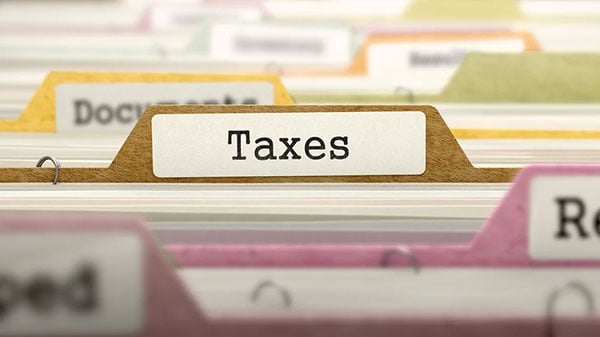In the United States, there are more than 351,000 Homeowners Associations (HOAs). They represent about 40 million households, or 53% of the owner-occupied homes in the country. Said differently, if you own your own home, there’s a good chance that you’re part of an HOA. Given how widespread HOAs are, it’s surprising that most people know very little about how HOAs operate. For example, are HOAs corporations, are they required to file tax returns and, if so, what kind of tax form do they file?
Here are 5 of the more common questions and answers about HOA taxes reporting requirements:
1. Are Any HOAs Tax-Exempt?
For tax reporting purposes, HOAs are treated as corporations by the federal government. This is true even if the HOA was originally created as a nonprofit in its home state. There are exceptions to this rule. An HOA can officially file to be recognized as a nonprofit, tax-exempt organization by the Internal Revenue Service (IRS). Many HOAs do not file IRS form 1024 (under tax code section501(c)(4)) for this recognition because the process can be expensive and such recognition can be difficult to obtain. It's also important to note that even those HOAs which achieve tax-exempt recognition are still required to file a tax return.
2. What Tax Form Do HOAs File?
As corporations, HOAs must file Form 1120, the U.S. Corporation Income Tax Return. This form is not popular with HOAs for several reasons. First, filing the form can be onerous, requiring a great deal of information. Providing this level of detail means HOAs must be relatively sophisticated in the way they keep their books. Second, this reporting requirement means that any income which isn’t spent, but rather held in reserve funds, becomes taxable for that year. Finally, Form 1120 usually means that the HOA treasurer must make estimated tax payments, further complicating his or her work.
3. Do All HOAs File Form 1120?
Some HOAs can avoid filing Form 1120 by utilizing section 528 of the tax code. This gives HOAs the ability to bypass 1120 and instead file the much simpler Form 1120-H. That form is just one page, this compared to the multi-paged 1120, and does not require completing 1120’s several schedules. To qualify for Form 1120-H, an HOA must first satisfy certain requirements. For example, a minimum of 60% of the HOA’s annual income must be so-called “exempt-function income”—this includes income form sources like annual membership dues, assessments, fees and interest on fees. In addition, at least 90% of expenditures must be for maintenance, management and construction of association property.
4. Are There Other Benefits of Qualifying for 1120-H?
A significant advantage of qualifying for Form 1120-H is that it means paying taxes only on “non-exempt income.” Examples of non-exempt income are rental income for any property owned by the HOA, interest and dividends and income from laundry and vending machines. Qualifying HOAs can deduct any income directly related to the generation of this non-exempt income, but must have records that adequately support those deductions. To calculate the amount of their tax, HOAs that use 1120-H can deduct $100 from their non-exempt income, with the remainder subject to a flat tax of 30%.
5. Is Qualification for Form 1120-H Permanent?
If an HOA qualifies to file Form 1120-H in one calendar year, it must still qualify again in each subsequent year. To qualify, an HOA must file Form 1120-H on time (defined as the 15th day of the 3rd month after the end of the HOA’s tax year). HOAs that fail to file 1120-H within 12 months of the due date can lose their eligibility to use Form 1120-H for that year.
Conclusion
Understanding the tax reporting requirements of your HOA can be complicated, but it’s important work. How much your HOA is required to pay in federal taxes directly impacts the amount of money it has on hand for other purposes. For that reason, HOAs, as part of their due diligence and responsibility to their members, should fully familiarize themselves with IRS tax reporting rules and seek a solution which provides the greatest benefits for their individual circumstances.

